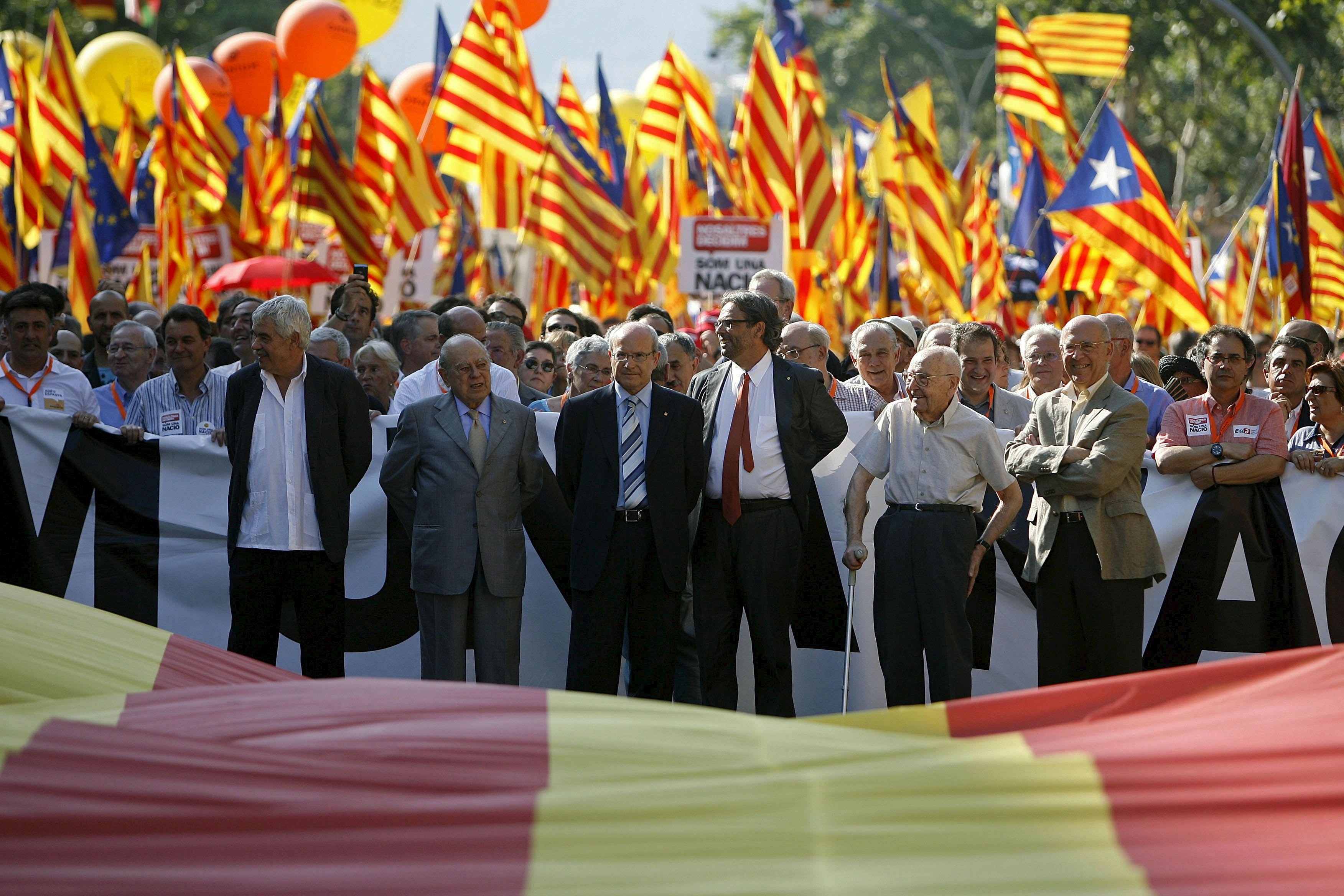Ten years after the ruling by Spain's Constitutional Court which shook the earth in Catalonia by rewriting a substantial part of the 2006 Catalan Statute of Autonomy, a large majority of Catalans, 61.5%, believe that the court's action was a "coup d'etat". This is one of the findings of a survey carried out by the Institut Feedback for ElNacional.cat which takes stock of the consequences of that decision.
The survey was based on a sample of 800 telephone interviews conducted between June 29th and July 2nd and has a margin of error of 3.54%.
Under the Spanish Constitution of 1978, Statutes of Autonomy function as a kind of a sub-constitution defining the relationship of each of the country's Autonomous Communities within the state. Catalonia's new Statute had been approved by Catalans in a referendum as well as by the Catalan and Spanish parliaments. But on June 28th, 2010 - seven years after the drafting of the new Statute began - the ruling of the Constitutional Court partially upheld the appeal of unconstitutionality filed by the Partido Popular and prompted the annulment of 14 articles of the law and the reinterpretation of 27 more. In addition, it left without legal value the term "nation", used to refer to Catalonia in the preamble. On July 10th, 2010, hundreds of thousands of people demonstrated in Barcelona against the sentence, in a protest which set the tone for mass protests calling for independence over the following years.
"A fair ruling? With the perspective of these 10 years, which of these two sentences best expresses your opinion regarding that ruling against the Statute?"
For 16.7%, it was just
With the perspective of the last decade, marked by Catalonia's independence process, 61.5% of respondents say that the phrase that best describes that ruling is "a judicial coup d'etat against the will of Catalans who had voted that Statute". By contrast, only 16.7% feel that it was "a just ruling". Another 16.8% believe that neither of the two views defines the court ruling well. Finally, 5.12% say they don't know.
Comparing responses on this question with how the survey participants voted in the 2017 Catalan elections, the view that the court ruling was a coup d'etat was supported by the vast majority of 2017 pro-independence party voters: 100% of those who voted for the CUP; 96.6% of those who voted ERC; and 81.6% of voters for JxCat. It was also supported by a large majority (69.6%) of Catalunya En Comú voters, while Socialist voters were split (49.4% said it was a coup). By contrast, the view that the sentence was fair found favour among voters for Ciudadanos (53.5%) and PP (63.4%). 36.6% of PP supporters and 23.6% of Cs did not opt for either option.
Rajoy, the main person responsible for the Statute's emasculation
When respondents were asked which political leader, court or government was primarily responsible for the cuts against the Statute, 27.8% pointed to the then leader of the Spanish opposition, Mariano Rajoy - the PP had taken the appeal to the Constitutional Court and had also organized a campaign around Spain to collect signatures against the Statute. In second place, the judges were held responsible by 17.9%, and in third place (12.7%) was the-then leader of the opposition in the Catalan Parliament, Artur Mas, who played a decisive role in the negotiation of the text with Spanish president José Luis Rodríguez Zapatero. Although at that time the PSOE ruled Spain and its Catalan Socialist partners the PSC were, along with ERC and ICV, in power in Catalonia, Zapatero was treated lightly by the survey respondents, only 11.8% of whom regarded him as the key person responsible for what happened. Then came Catalan president José Montilla and his tripartite government, held to blame by 3.1%. As well, 6.8% believed “others” were responsible and 19.9% didn't know.
Image: Montilla - in the centre - with Pujol, Maragall, Benach, Barrera and Rigol, at the head of the demonstration in Barcelona against the Constitutional Court's ruling which emasculated the Statute, on July 10th, 2010 / Marta Pérez / EFE

